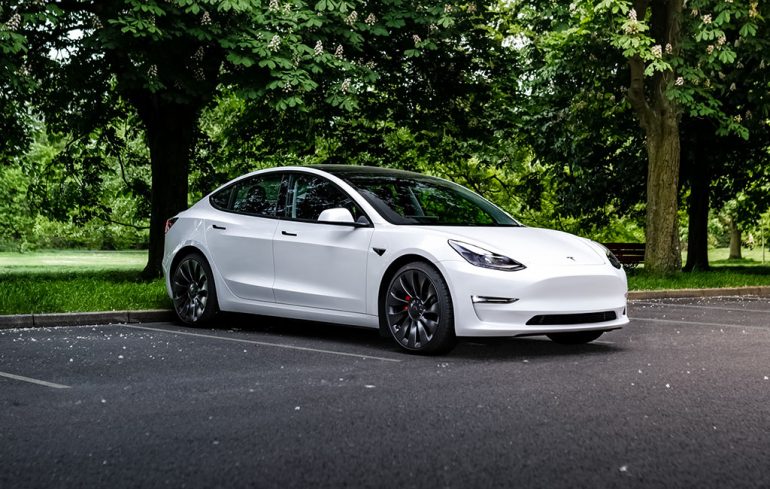
Several electric vehicle models, including popular ones like the Nissan Leaf, Tesla Cybertruck All-Wheel Drive, some Tesla Model 3s, and the Chevrolet Blazer EV, have recently lost eligibility for tax credits of up to $7,500. This change is a result of new battery sourcing rules that came into effect on Monday, according to the U.S. Treasury. In December, the Treasury issued guidelines outlining these rules, with the aim of reducing dependence on Chinese sources within the U.S. electric vehicle supply chain.
The impact on the electric vehicle market is substantial, as the number of models qualifying for U.S. EV tax credits has dropped from 43 to 19, including various versions of the same vehicle type. However, the Treasury mentioned that some manufacturers have not yet submitted information on eligible vehicles, and this could lead to potential changes in the list.
Also, don’t forget that you can get discounted new car pricing with a free quote through qualified local dealer partners.
While Tesla did not provide an immediate comment, it stated on its website that the Cybertruck is likely to qualify for the federal tax credit later in 2024. Other manufacturers, such as Volkswagen and BMW, are in the process of confirming eligibility for a federal EV tax credit for their vehicles after January 1.
Nissan expressed its commitment to working with suppliers to meet the changing requirements and regain tax credit eligibility for the Nissan Leaf in the future. The Treasury emphasized that automakers are adjusting their supply chains to ensure continued eligibility for the new clean vehicle credit, fostering partnerships and bringing jobs and investments back to the United States.
Ford Motor recently announced that certain models, including the E-Transit, Mach-E, and Lincoln Aviator Grand Touring plug-in hybrid, would lose tax credits, while others like the F-150 EV Lighting and the Lincoln Corsair Grand Touring would retain them.
General Motors indicated that all of its EVs, except the Chevrolet Bolt, would temporarily lose eligibility, with the Lyriq and Blazer EV being affected due to minor components. GM expects that after a sourcing change, the Lyriq and Blazer EV will regain eligibility in early 2024. The company stated that its Chevrolet Equinox EV, Chevrolet Silverado EV, GMC Sierra EV, and Cadillac OPTIQ produced after the sourcing change would be eligible for the full incentive.
The context of these changes is rooted in the 2022 Inflation Reduction Act, which reformed the EV tax credit by requiring vehicles to be assembled in North America to qualify for any tax credits. This move eliminated nearly 70% of eligible models at the time. Tesla, in particular, disclosed in December that certain versions of its Model 3 would lose federal tax credits starting January 1, while the Model 3 Performance would retain the $7,500 credit. The evolving landscape of EV tax credits reflects the ongoing efforts to shape the industry and encourage domestic production.
Here’s a list from FuelEconomy.gov, for many EVs that qualify for a tax credit (check the link for other specific vehicles if they qualify):
| Make | Model | Model Year | Credit Amount | MSRP Limit |
| Chevrolet | Bolt EV | 2022–2023 | $7,500 | $55,000 |
| Chevrolet | Bolt EUV | 2022–2023 | $7,500 | $55,000 |
| Chrysler | Pacifica PHEV | 2022–2024 | $7,500 | $80,000 |
| Ford | Escape Plug-in Hybrid | 2022–2024 | $3,750 | $80,000 |
| Ford | F-150 Lightning (Extended Range Battery) | 2022–2024 | $7,500 | $80,000 |
| Ford | F-150 Lightning (Standard Range Battery) | 2022–2024 | $7,500 | $80,000 |
| Jeep | Grand Cherokee PHEV 4xe | 2022–2024 | $3,750 | $80,000 |
| Jeep | Wrangler PHEV 4xe | 2022–2024 | $3,750 | $80,000 |
| Lincoln | Corsair Grand Touring | 2022–2024 | $3,750 | $80,000 |
| Rivian | R1S Dual Large | 2023–2024 | $3,750 | $80,000 |
| Rivian | R1S Quad Large | 2023–2024 | $3,750 | $80,000 |
| Rivian | R1T Dual Large | 2023–2024 | $3,750 | $80,000 |
| Rivian | R1T Dual Max | 2023–2024 | $3,750 | $80,000 |
| Rivian | R1T Quad Large | 2023–2024 | $3,750 | $80,000 |
| Tesla | Model 3 Performance | 2023–2024 | $7,500 | $55,000 |
| Tesla | Model X Long Range | 2023–2024 | $7,500 | $80,000 |
| Tesla | Model Y All-Wheel Drive | 2023–2024 | $7,500 | $80,000 |
| Tesla | Model Y Performance | 2023–2024 | $7,500 | $80,000 |
| Tesla | Model Y Rear-Wheel Drive | 2024 | $7,500 | $80,000 |